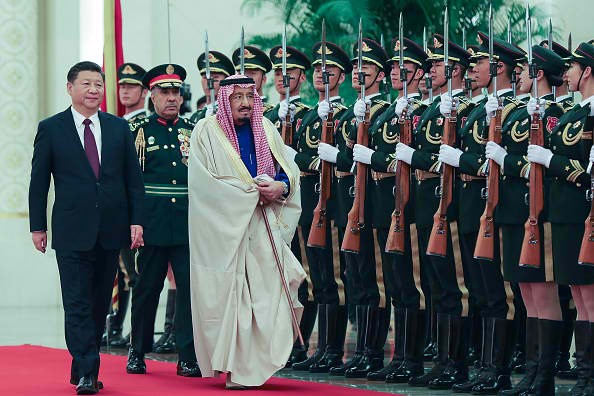China has recently engaged with rivals Syria, Israel, Iran and Saudi Arabia -- all at the same time -- in a bid to reach out to West Asia, news portal The Hindu reported.
On Tuesday, Chinese President Xi Jinping and Israeli Prime Minster Benjamin Netanyahu announced an "innovative comprehensive partnership," maximizing China's absorption of the West Asian nation's comparative advantage in terms of high technology.
The partnership proves to be timely and in sync with China's "Made in China-2025" strategy to tap the potential of Internet, Big Data and robotics to help advance its manufacturing sector.
Additionally, Netanyahu pointed out that the two countries' other top priorities include clean energy, agriculture, finance, investment and medical services.Israel also expressed hopes in joining China's Belt and Road initiative.
Besides Israel, China is also fostering ties with West Asian giant Saudi Arabia.
During the visit of King Salman bin Abdulaziz Al Saud in Beijing, the two leaders inked agreements and letters of intent worth $65 billion. The partnerships include projects involving energy, space and investment, among others.
China is also supporting the plan, "Saudi Vision 2030," which maps out the kingdom's plan to reduce its dependence on oil and increase its reliance in other economic growth drivers, including health, education, tourism and infrastructure development.
While enhancing ties with Saudi, China also maintains a strong relationship with rival Iran.
These complex series of diplomatic ties also include reaching out to war-stricken Syria. For years now, China and Russia have been actively teaming up to prevent "regime change" in the country. The same plan is being backed by Iran.
This type of Chinese politics has earned the attention of a news outlet. In an op-ed released on Wednesday, the Global Times suggested that China should distance itself from going deeper in its relations with West Asia.
"The complexity of Middle East affairs should be fully recognized. China's ability to influence the region still lags behind the U.S., the EU and even Russia. China is faced with a complicated geopolitical situation, and the Middle East is not in the core area of China's diplomatic interests," the Global Times wrote.
"Under such circumstances, China should continue its present stance and work firmly on economic cooperation. To strengthen its economic power and partnership in a low-profile manner is the right strategy for China's Middle East policy," the daily's op-ed added.



























